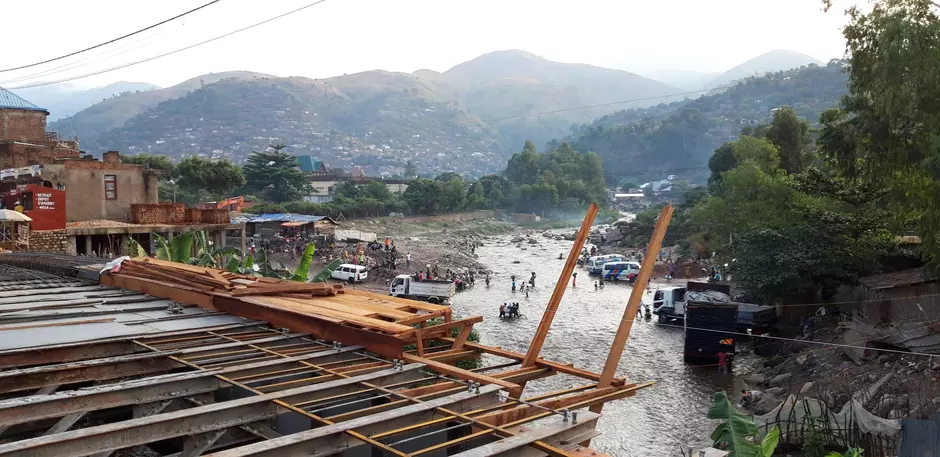In areas affected by cholera, conflict can further drive cholera diffusion and hinder outbreak response efforts. A recent study by Charnley et al. has assessed the association between conflict and cholera in Nigeria and the Democratic Republic of the Congo over the past 23 years.

Cholera risk factors are multifaceted. Once a community is exposed to Vibrio cholerae O1, poor access to safe drinking water, sanitation facilities and hygiene (WASH) services increase the risk of disease transmission (1,2). Conflict can further drive cholera diffusion and hinder outbreak response efforts (3). During conflicts, basic services, disease control programs and health systems can be disrupted. Response and healthcare workers may withdraw from affected areas because of safety concerns. Conflict can also worsen or cause population vulnerabilities and displacement (4), thus further limiting access to healthcare and basic services (including WASH).
A recent study by Charnley et al. has assessed the association between conflict and cholera in Nigeria and the Democratic Republic of the Congo (DRC) from January 1997 to May 2020 (5). Both countries have a high cholera burden (6) and experience active conflicts, such as the Boko Haram insurgency in northeastern Nigeria (7) and political unrest in eastern DRC (8).
The study found that conflict significantly increased the rate of cholera outbreaks in Nigeria and the DRC. Conflict increased the risk for cholera in Nigeria by 3.6 times and in the DRC by 2.6 times. Furthermore, 19.7% of cholera outbreaks in Nigeria and 12.3% of outbreaks in the DRC were attributable to conflict (5).
Areas where rates of cholera increased most often coincided with areas of high conflict. The effect of conflict on cholera was also highly significant in states and provinces adjacent to high-conflict areas, which may be due to cholera spill over associated with population displacement. In Nigeria, the study found statistically significant associations between conflict and cholera outbreaks for 24 of the 36 states analyzed. In Nigeria, the strongest effects were in Kebbi, Lagos, Osun, Borno and Nasarawa. In DRC, a statistically significant relationship was observed between conflict and cholera for 11 of the 22 provinces included in the analysis. In the DRC, the strongest effects were in Tanganyika, Kasaï-Oriental, Maniema, Nord-Kivu and Kasaï (5).
These findings highlight the importance of providing rapid and sufficient assistance during conflict-associated cholera outbreaks, working toward conflict resolution and addressing underlying factors that render populations vulnerable to cholera outbreaks.
To learn more, the full article is available here:
https://www.ncbi.nlm.nih.gov/pmc/articles/PMC9707578/
REFERENCES
- D’Mello-Guyett L, Gallandat K, Van den Bergh R, Taylor D, Bulit G, Legros D, et al. Prevention and control of cholera with household and community water, sanitation and hygiene (WASH) interventions: A scoping review of current international guidelines. PLoS One [Internet]. 2020 Jan 8 [cited 2020 Mar 12];15(1). Available from: https://www.ncbi.nlm.nih.gov/pmc/articles/PMC6948749/
- Leckebusch GC, Abdussalam AF. Climate and socioeconomic influences on interannual variability of cholera in Nigeria. Health Place. 2015 May 18;34:107–17.
- Dureab F, Shibib K, Al-Yousufi R, Jahn A. Yemen: Cholera outbreak and the ongoing armed conflict. Journal of infection in developing countries. 2018 May 31;12(5):397–403.
- Okunlola OC, Okafor IG. Conflict–Poverty Relationship in Africa: A Disaggregated Approach. Journal of Interdisciplinary Economics. 2022 Jan 1;34(1):104–29.
- Charnley GEC, Jean K, Kelman I, Gaythorpe KAM, Murray KA. Association between Conflict and Cholera in Nigeria and the Democratic Republic of the Congo. Emerg Infect Dis. 2022 Dec;28(12):2472–81.
- World Health Organization. Cholera case and death numbers by country [Internet]. The Weekly Epidemiological Record. Available from: https://www.who.int/wer/en/
- Agbiboa D. The ongoing campaign of terror in Nigeria: Boko Haram versus the state. Stability: International Journal of Security and Development [Internet]. 2013;2(3). Available from: https://stabilityjournal.org/articles/10.5334/sta.cl
- Center for Preventive Action. Global Conflict Tracker: Instability in the Democratic Republic of Congo [Internet]. 2023. Available from: https://www.cfr.org/global-conflict-tracker/conflict/violence-democratic-republic-congo
